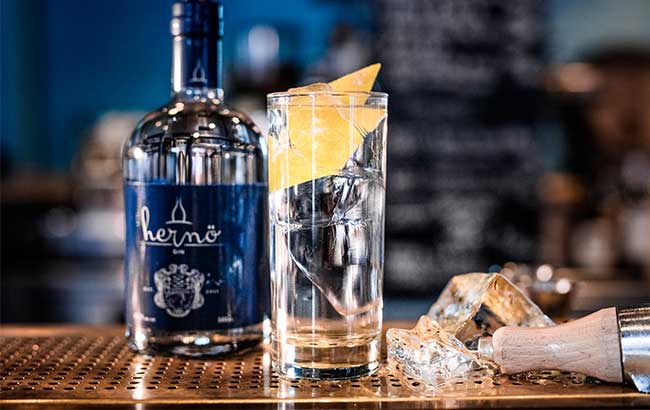Sweden to allow takeaway alcohol sales
The Swedish government is proposing to allow small distillers, wineries and breweries to sell alcohol directly to visiting customers.

Sweden has a government alcohol monopoly called Systembolaget for the sale of all alcoholic drinks stronger than 3.5% ABV.
The government has now proposed to enable ‘farm sales’ of alcohol, whereby small-scale distilleries, breweries and wineries can sell their products to consumers visiting their production sites or brand homes.
The proposal could come into effect in the first half of 2025.
“This is a long-awaited freedom reform that opens up for a growing industry to continue developing,” said Ulf Kristersson, prime minister of Sweden.
“Entrepreneurs who with craftsmanship and passion ran their business with limited opportunities to sell their product, should now be able to do just that. Customers who visit wineries and microbreweries should have the opportunity to buy a few bottles home and the Swedish hospitality industry should be able to grow.”
The government said farm sales of alcohol have been debated for a long time and investigated three times, with different results.
The minister of social affairs, Jakob Forssmed, added: “We know that many visitors today perceive it as arbitrary and complicated that you are not allowed to buy products from a visit. Now, for the first time, we will be able to proceed with a proposal regarding farm sales, something that no other previous government has succeeded in doing.”
The legislation would be open to companies with an annual production of up to 75,000 litres of spirits, 400,000 litres of fermented beverages up to 10% ABV, and 200,000 litres of fermented beverages with more than 10% ABV.
Industry response
Sweden’s Spirits & Wine Suppliers Association, SVL, noted that any introduction of farm sales “must be compatible with Systembolaget’s retail monopoly” and be based on equal terms.
According to SVL, a model for farm sales must ensure that the retail monopoly can be maintained at the same time that no players in the market are favoured over others.
The trade body called on the government to “deepen the dialogue with the EU before proceeding with a possible bill” with the hope of reaching “clear” conditions when it comes to the introduction of alcohol sales.
Swedish gin maker Hernö welcomed the move but said the proposal has “shortcomings since it excludes mature businesses and distilleries who have come a bit further in their business journey”.
The company, which operates a gin hotel in Härnösand, said in a statement: “We welcome the proposal but unfortunately it has a limit, stating that only producers with a yearly production of less than 75,000 litres will be allowed that kind of sales. Hernö Gin is well above that limit.
“Cellar door sales is a good thing. Many people come visit our distillery, both from Sweden and international. Being able to offer the possibility to try our gin in the heart of the production, and to bring a bottle home, would create a better experience. It’s not about making money, but to be able to offer a holistic experience and simplify for tourists. (The new proposal allows consumers to buy 0.7 litres of alcohol. Or for example three litres of wine and three litres of strong beer).”
Hernö added: “We will wait and see if it will evolve as many critical voices has been raised, questioning the limitations and the fairness of the proposal.”
Related news
Mackmyra Distillery saved from bankruptcy
